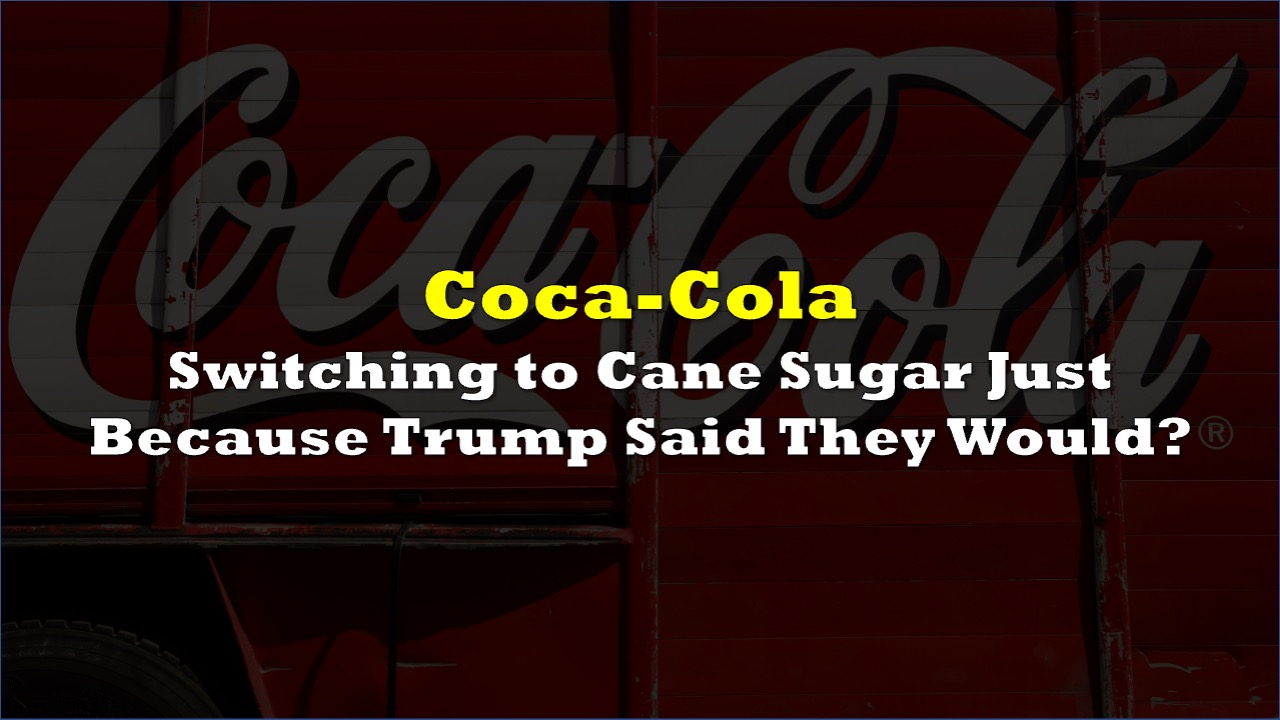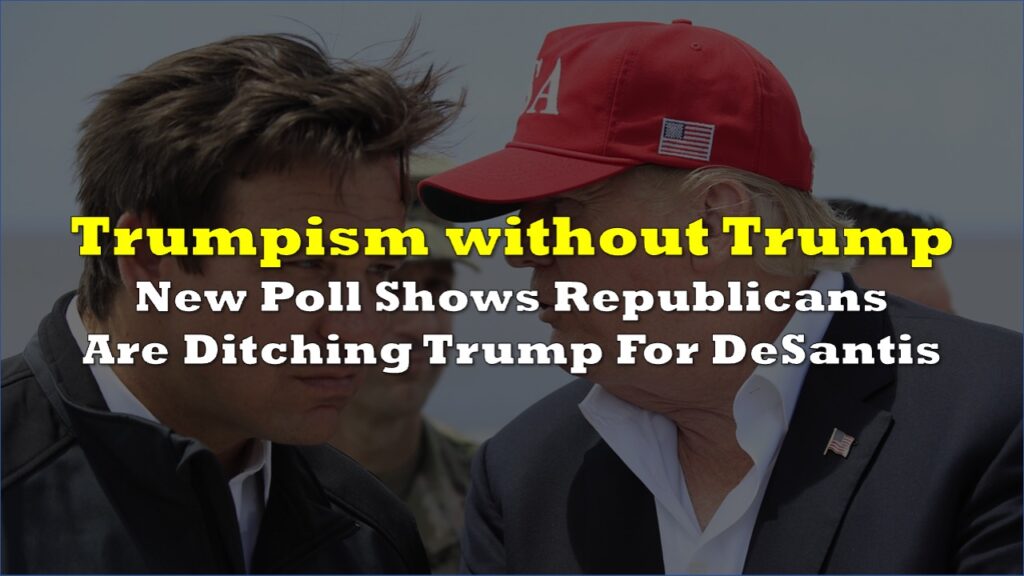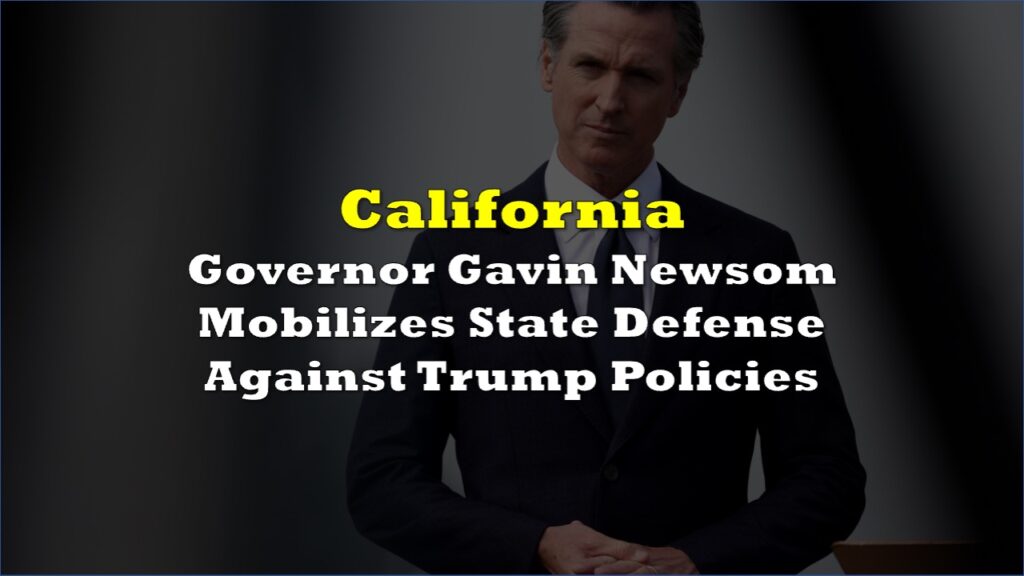The Coca-Cola Company (NYSE: KO) offered a diplomatically worded response Wednesday after President Donald Trump claimed the beverage maker had agreed to reformulate its signature soda with cane sugar, stopping short of confirming any such commitment and raising questions about the economics of such a major change.
Trump claimed on Truth Social that he had been “speaking to Coca-Cola about using REAL Cane Sugar in Coke in the United States, and they have agreed to do so.” He called the move “just better” and thanked company leadership.
However, when pressed for details, Atlanta-based Coca-Cola Co. offered only a carefully worded statement: “We appreciate President Trump’s enthusiasm for our iconic Coca‑Cola brand. More details on new innovative offerings within our Coca‑Cola product range will be shared soon.”
The company did not explicitly confirm it would switch from high-fructose corn syrup to cane sugar for its main US products.
Coca-Cola will never do this, and they’re definitely not “speaking” with Trump about it. Sugar is far more expensive than HFCS, and about all of our sugar is imported from Mexico, Brazil, Guatemala, and the Dominican Republic—all of which will be subject to tariffs.
— jethro. 🗯️ (@jethrostudio) July 16, 2025
Not to… pic.twitter.com/nnWPULh3z0
Any switch would face significant economic challenges that could complicate Trump’s announcement. The US maintains steep tariffs on sugar imports, including a 244% duty on imports above established quotas, making foreign sugar substantially more expensive than domestically subsidized corn syrup.
The timing is particularly problematic given Trump’s recent trade policies. The president announced a 50% tariff on Brazilian imports starting August 1 — and Brazil is the world’s largest sugar producer. Other major sugar exporters like Mexico, Guatemala, and the Dominican Republic would also face new trade barriers under Trump’s expanded tariff regime.
The corn industry immediately opposed any potential switch: “Replacing high fructose corn syrup with cane sugar doesn’t make sense,” said John Bode, president of the Corn Refiners Association.
“President Trump stands for American manufacturing jobs, American farmers, and reducing the trade deficit. Replacing high fructose corn syrup with cane sugar would cost thousands of American food manufacturing jobs, depress farm income, and boost imports of foreign sugar, all with no nutritional benefit.”
Coca-Cola has used high-fructose corn syrup as its primary US sweetener since the mid-1980s, when it switched due to federal corn subsidies that made the sweetener cheaper than imported sugar. The company continues to use cane sugar in products sold in Mexico, parts of Europe, and other international markets.
Beyond cost concerns, a switch would require significant changes to Coca-Cola’s US production infrastructure. Manufacturing facilities would need modifications to handle different sweetener processing, potentially leading to higher production costs and shorter shelf life for the finished product.
The company already imports limited quantities of Mexican Coca-Cola made with cane sugar, which has developed a cult following among American consumers who claim to prefer its taste. These glass-bottled versions typically sell at premium prices.
The announcement appears linked to the Trump administration’s “Make America Healthy Again” initiative, led by Health Secretary Robert F. Kennedy Jr., which has pushed food companies to remove artificial ingredients and additives. Kennedy has specifically criticized high-fructose corn syrup’s role in American diets.
However, nutritional scientists say there is minimal health difference between cane sugar and high-fructose corn syrup, both of which contribute to obesity and diabetes when consumed in large quantities.
Information for this story was found via the sources and companies mentioned. The author has no securities or affiliations related to the organizations discussed. Not a recommendation to buy or sell. Always do additional research and consult a professional before purchasing a security. The author holds no licenses.









